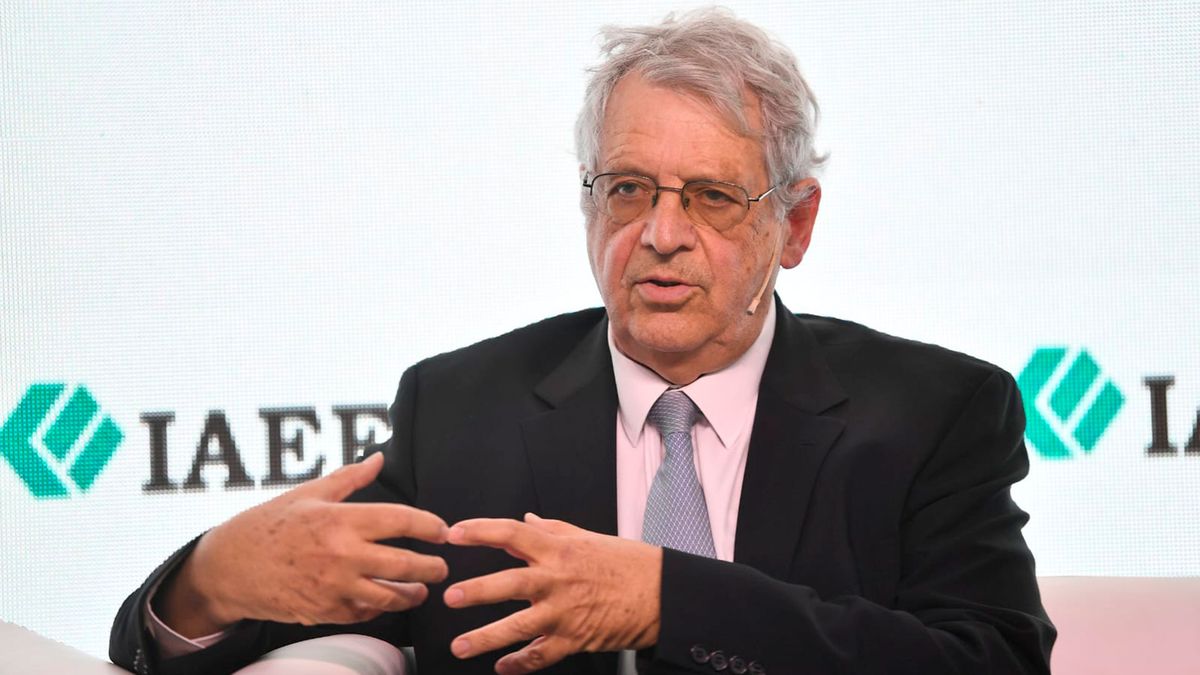Gabriel Rubinsteinformer deputy minister of economy and number two of the then minister Sergio Massashared his views on the economic policy of the current government of Javier Milei and conducted by Luis Caputo offered some praise, as well as warnings about the project’s effectiveness.
Rubinstein praised the fiscal consolidation achieved by Milei’s government, highlighting the fiscal adjustment of 5 points of the Gross Domestic Product (GDP) as a significant achievement to maintain fiscal balance and mentioned that under his administration he tried to go that way, but “They didn’t give him any attention“throwing a stick at Massa.
Gabriel Rubinstein highlighted Javier Milei’s plan
“I think it is very valuable that Milei has faced a strong fiscal adjustment from the beginning. Obviously we can discuss the quality of that adjustment, which has many problems.but beyond that the signal is very important. It is a kind of “Milei anchor” and sends the message that whatever happens Milei is not going to give up the fiscal adjustment, whether by good or by bad means, by brute force or by more intelligent, wiser means,” Rubinstein began by saying in radio statements to Radio con Vos.
“In companies, in the local and international market, it is known that Milei is not going to give up on fiscal adjustment and that is fundamental for me in Argentina. That is half of the work in essence and it was good. I start from there. I would have liked to do it very much, I wanted to eliminate the fiscal deficit and they didn’t pay attention to me.. Then there was some progress in that direction, but problems such as drought arose. Milei did it with determination and I value that very much. That’s the first thing.“, he added.
massa-rubinstein.jpeg
The former vice-minister then questioned the idea that the current recession was inevitable, arguing that the fiscal adjustment should not have been recessionary because it replaced the inflationary tax. In addition, the devaluation was intended to reduce the exchange rate gap without seriously affecting wages. “The ‘non-agricultural’ GDP should have fallen by approximately 1%, not around 6%, in these six months,” according to his calculations, he explained.
And for Rubinstein in the application of the devaluation was malpractice. This, he explains, because “They did it in a brutal way and they swallowed up a very large recession.” “There was a serious error in how this aspect was addressed.” And he launched: “Milei said that after reducing the monetary base the dollar would fall, and since he said that the monetary base has risen by 70% and nobody gives explanations, nor do they ask the BCRA. That, for me, means that they have a big mistake in the concept of quasi-fiscal analysis, that what is in the BCRA is bad and what is in the Treasury is good“Honestly, I think they firmly believe in that, but they are seriously wrong.”
“There was a huge monetary expansion and that undermines the fiscal adjustment and that puts pressure on the dollar,” he warned.
The expansion of the monetary base
According to him, the Monetary Base, in the last 60 days, increased by an estimated 3 trillion pesos, equivalent to 25% of the Monetary Base. This excess has caused a high demand for dollars and goods, contributing to the increase in the dollar counted with liquidation. (CCL).
“The expansionary monetary policy (excessive issuance and exaggerated reduction of rates) has been, for me, an unforced error that overshadows fiscal performance and will probably make it difficult to get out of the currency controls without another significant devaluation,” warned Rubinstein.
In August 2022, Massa appointed Rubinstein as Secretary of Economic Programming, a position known as the Vice-Ministry of Economy. Before his tenure in the Fernández government, Rubinstein was a representative of the Central Bank during the administration of Roberto Lavagna between 2002 and 2005.
Source: Ambito




